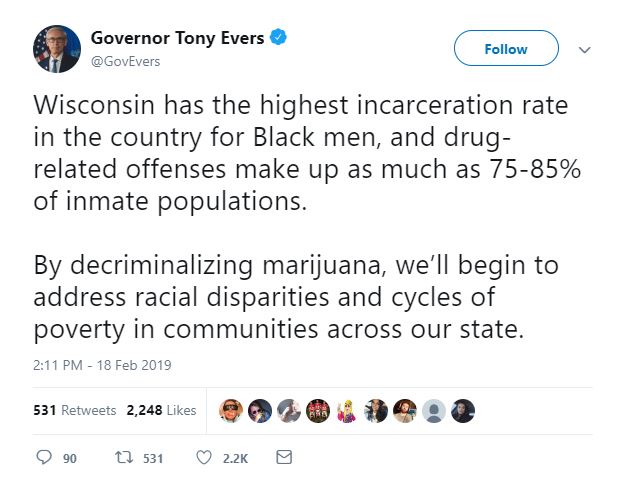By Eric Litke
Gov. Tony Evers’ announcement that he would push to decriminalize marijuana in Wisconsin was one of the biggest splashes of his young tenure.
It drew media coverage from across the country and sparked a war of news releases on the homefront.
Evers said Feb. 18, 2019, that his first budget would include proposals to legalize medical marijuana; allow possession of small amounts of marijuana for personal use; and expand the ability to expunge certain drug possession convictions.
A news release announcing the move touted the medicinal benefits of marijuana, then pivoted to making a social justice case for change.
"Reforming Wisconsin’s marijuana laws to align with the people’s support for medical marijuana is an important part of the governor’s plan," the release said. "But so, too, is addressing the social and racial justice aspect of marijuana use. Wisconsin has the highest incarceration rate in the country for Black men, and drug-related crimes account for as many as 75-85 percent of all inmates in our prisons."
Evers touted the same 75-85 percent statistic in a since-deleted tweet that day making the case for decriminalizing marijuana. It was repeated in the text of the NBC News story on Evers’ announcement.
That’s a really high number.
Given all the possible actions that could land a person in prison, do drug crimes really account for three-quarters or more of all inmates?
Several ways to track drug crimes – but none top 30 percent
The Wisconsin Department of Corrections uses a number of measures to
track how inmates landed behind bars. But none of them are anywhere
close to Evers’ number.Read more: https://www.politifact.com/wisconsin/statements/2019/feb/22/tony-evers/evers-claims-drug-crimes-prison-inmates/







No comments:
Post a Comment